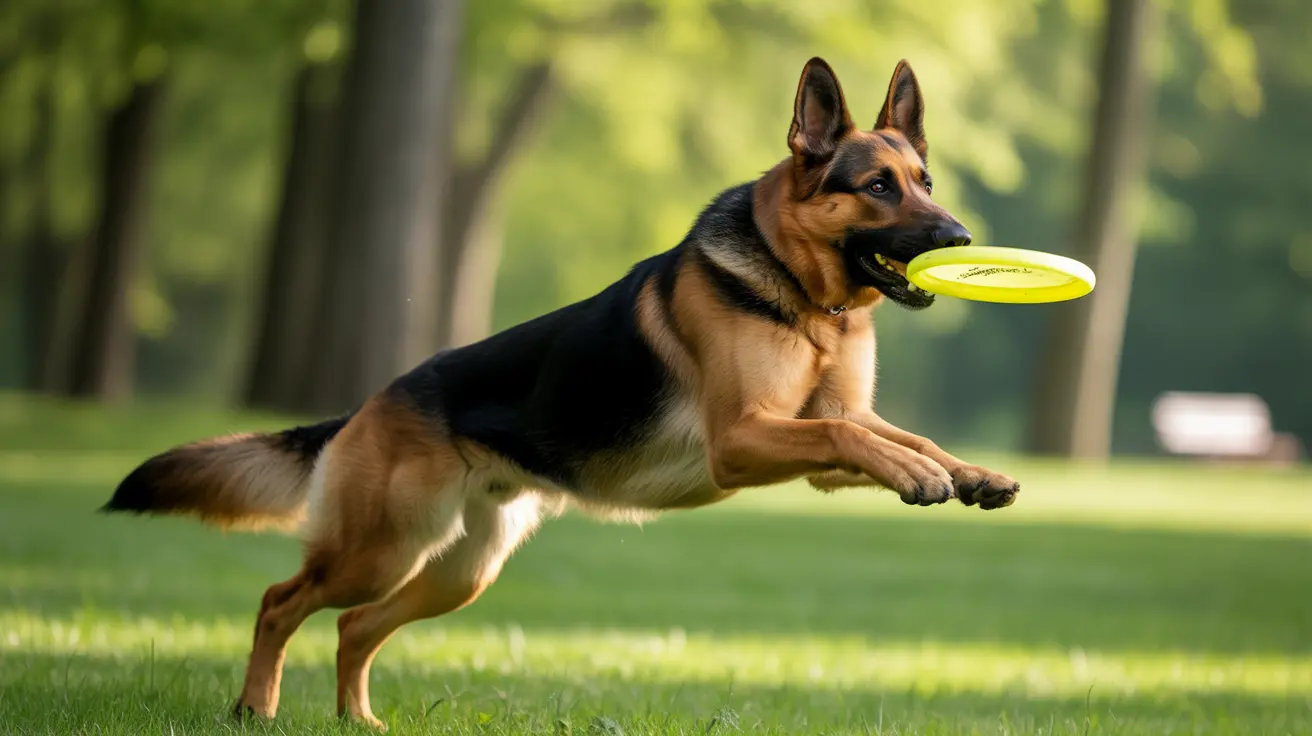Choosing the right nutrition for your German Shepherd is crucial for maintaining their high energy levels, muscle strength, and overall health. As large, active dogs with specific dietary needs, German Shepherds require carefully balanced nutrition that supports their dynamic lifestyle and unique physical characteristics.
In this comprehensive guide, we'll explore the best dog food options for German Shepherds, focusing on high-quality ingredients and specialized formulations that cater to their nutritional requirements.
Essential Nutritional Components for German Shepherds
German Shepherds thrive on diets rich in high-quality animal proteins, which should make up at least 22-26% of their daily nutrition. These proteins support muscle maintenance and repair, especially important for active dogs.
Quality fats, comprising 12-16% of their diet, provide sustained energy and support coat health. Look for foods containing omega-3 and omega-6 fatty acids from sources like fish oil and flaxseed.
Premium Dog Food Recommendations
Several top-tier dog food brands offer formulations specifically designed for German Shepherds:
- Royal Canin German Shepherd Adult
- Victor Purpose Performance Formula
- Dr. Gary's Best Breed German Dog Diet
- Ollie Fresh Dog Food
- Nom Nom Fresh Pet Food
Special Dietary Considerations
Active German Shepherds may require higher caloric intake, often 1,700-2,400 calories daily, depending on their activity level and size. Working dogs might need even more to maintain their energy levels and muscle mass.
Joint support ingredients like glucosamine and chondroitin are essential, as German Shepherds are prone to hip and elbow dysplasia. Look for foods fortified with these supplements.
Ingredients to Look For and Avoid
Beneficial Ingredients:
- High-quality animal proteins (chicken, lamb, fish)
- Complex carbohydrates (sweet potatoes, brown rice)
- Fruits and vegetables for vitamins and antioxidants
- Probiotics for digestive health
Ingredients to Avoid:
- Artificial preservatives (BHA, BHT)
- Generic meat by-products
- Excessive fillers and corn
- Artificial colors and flavors
Feeding Guidelines and Tips
Adult German Shepherds typically need 2-3 meals per day. Portion sizes should be adjusted based on age, weight, and activity level. Always transition to new food gradually over 7-10 days to prevent digestive upset.
Frequently Asked Questions
What are the key nutritional requirements for active German Shepherds to maintain muscle, joint, and digestive health?
Active German Shepherds require high-quality protein (22-26%), healthy fats (12-16%), and complex carbohydrates. They also need joint-supporting supplements like glucosamine and chondroitin, plus probiotics for digestive health.
Which dog foods are best suited for high-energy German Shepherds with sensitive digestion or joint issues?
Premium options like Royal Canin German Shepherd Adult and Victor Purpose Performance Formula are specifically formulated with easily digestible proteins and joint support supplements. Fresh food options like Ollie and Nom Nom can also be excellent for sensitive dogs.
How important is animal-based protein and essential fatty acids like Omega-3 in a German Shepherd's diet?
Animal-based proteins are crucial for muscle maintenance and repair, while omega-3 fatty acids support joint health, reduce inflammation, and maintain coat quality. These should be primary components in any German Shepherd's diet.
What ingredients should I avoid when choosing the best dog food for my German Shepherd?
Avoid artificial preservatives, generic meat by-products, excessive fillers, corn as a primary ingredient, and artificial colors or flavors. These can cause digestive issues and offer limited nutritional value.
How can I adjust my German Shepherd's diet based on their age, activity level, and health needs?
Monitor your dog's weight and energy levels, adjusting portions accordingly. Working dogs need more calories and protein, while less active dogs require fewer calories to prevent weight gain. Consult your veterinarian for personalized recommendations based on your dog's specific needs.






